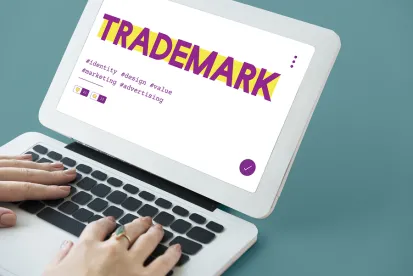The Supreme Court Is Now Poised to Answer This Question.
Certain licensees of intellectual property are expressly given expanded rights when their licensors file bankruptcy. But, what about trademark licensees? Trademarks are not among the defined categories of “intellectual property” for bankruptcy purposes. Nonetheless, are trademark licensees otherwise protected in a licensor bankruptcy? The U.S. Supreme Court is poised to finally answer this question now that it has granted certiorari in Mission Product Holdings, Inc. v. Tempnology, LLC, 879 F.3d 389 (1st Cir. 2018).
The question before the First Circuit in In re Tempnology was whether a trademark licensee could take advantage of rights granted intellectual property licensees under Section 365(n) of the Bankruptcy Code. Under Section 365(n), if a debtor rejects an executory contract under which the debtor is a licensor of intellectual property, the licensee may either (a) elect to treat the contract as terminated (i.e., breached), and file a proof of claim for damages flowing from the debtor’s termination of the contract, or (b) retain its rights to use the intellectual property under the contract for the duration of the contract and for any extension periods provided for by the contract.
However, as mentioned above, trademarks are not included within the listed categories of “intellectual property” as defined by the Bankruptcy Code. Thus, the question arises whether a trademark licensee can utilize Section 365(n) to continue to utilize the trademark notwithstanding the licensor’s bankruptcy filing.
Some courts that have considered this issue have determined that Congress did not intend to protect a trademark licensee in the same way in which an intellectual property licensee is protected. However, some courts have rejected this so-called “negative inference” and have held that bankruptcy courts have the authority to permit a non-debtor to retain a trademark license based upon the equities of the case. In Sunbeam Prods. v. Chicago Am. Mfg., LLC, 686 F.3d 372 (2012), the Seventh Circuit Court of Appeals rejected the “negative inference” but held that a non-debtor’s right to continue to use a trademark license is based on a breach of contract analysis, since rejection of the license agreement is treated under Section 365(g) as a prepetition breach of contract.
In In re Tempnology, the First Circuit rejected the Sunbeam decision, holding that Sunbeam was based upon the faulty premise that allowing the licensee to continue to utilize the trademark did not require the debtor licensor to continue to perform under the license agreement. Thus, the majority held, allowing a trademark licensee to continue to utilize the trademark post-rejection ran contrary to the “principal aim” of Congress in permitting rejection of executory contracts, which was to release a debtor’s estate from continuing obligations that would interfere with reorganization. Instead, the majority held that it was up to Congress to expand the scope of Section 365(n) to include trademarks.
On October 26, 2018, the Supreme Court granted certiorari to answer the following question:
Whether, under § 365 of the Bankruptcy Code, a debtor-licensor’s “rejection” of a license agreement — which “constitutes a breach of such contract,” 11 U.S.C. § 365(g) — terminates rights of the licensee that would survive the licensor’s breach under applicable nonbankruptcy law.
The Supreme Court may now finally give parties guidance as to what happens to a trademark license when the trademark licensor rejects the trademark license agreement. Do trademark licensees have any protections like those afforded licensees of intellectual property under Section 365(n)? Is the Seventh Circuit’s approach in Sunbeam appropriate, in which case, trademark licensees will be able to continue to utilize their licensed trademarks notwithstanding the rejection of the license agreement? Or, does Congress’s decision to omit trademarks from the definition of “intellectual property” deprive trademark licensees of all rights upon rejection and is it therefore up to Congress, and not the courts, to clarify the status of trademark rights post-rejection? The Supreme Court’s decision is certain to have a dramatic impact upon the rights and obligations of both trademark licensors and licensees. We will keep our readers informed as this case progresses.
Mark will be speaking at the American Intellectual Property Law Association’s Winter Meeting in Tampa, Florida on February 1, 2019. The title of Mark’s presentation is “Intellectual Property and Bankruptcy: Worlds Collide, But It’s Not As Bad As You Think It Is.”




 />i
/>i

